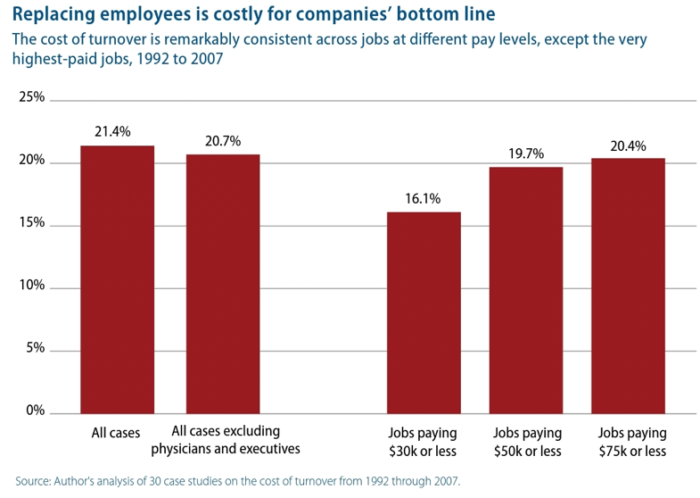79% of CEOs said lack of key skills was one of their top three concerns and 46% see upskilling as their favourite solution.
With the improvements in technology, jobs are changing. Some jobs are being eliminated or revolutionized to bring them up-to-date.
Likewise, some jobs are being created to meet up with the demands created by technology. New technologies like the internet, artificial intelligence, software development, have made upskilling necessary in the new economy.
Download our Free Resource – Marketing careers and skills development workbook
Our guide shows you how to map out your personal short-term and long-term goals, become more productive in your day-to-day work, identify your key motivators and analyze your digital marketing skills.
Access the Marketing careers and skills development workbook template
In a PwC survey, 79% of CEOs said lack of key skills was one of their top three concerns and 46% see upskilling as their favourite solution.
As a team manager, one challenge you need to take on is the upskilling of your team members. Upskilling can help them improve their skills to do their jobs better, as well as providing them with a feeling of security in their roles.
If you’re still unsure about whether to upskill your employees or not, here are nine reasons that will convince you that upskilling is worth the potential investment.
1. Improves workers’ productivity
To get the best results in any workplace, workers have to be at their best, providing the right services or creating the right products. How can an employee produce their best work when their skills are obsolete? Or better said, when technology moves at such a huge speed?
Technology has necessitated many changes in different work processes from manufacturing to services. Upskilling helps your workers to upgrade and gain new knowledge on how to do their best work.
With this, they can do more at their workplaces, which, in turn, means better results for your workers’ time. Another way upskilling leads to a boost in productivity is that it increases engagement.
When workers learn new things about their job, they become more engaged and committed to implementing the latest trends in their tasks. Considering that only 32.7% of US workers are engaged in their work, according to Gallup, there's a big room for improvement.
Another effect of upskilling your team is that it creates consistency in your team’s processes. Most team members will engage in similar training; this encourages a similar approach to your team’s work.
2. Upskilling will get your team ready for the information age
Workplaces are achieving better results than the past by following different processes. The information age is here and it affects most businesses.
By upskilling your team members, they can keep up with the information on how technology affects their job, what they need to learn to stay relevant and what new skills they need to acquire.
When your workers are capable of exploiting new technologies to make their work more effective, it’s easier to provide new tools. Your workers are also aware of the new standards that can make them better at their work.
3. Helps workers to serve customers better
If you want to treat your customers better, the first step is to treat your employees well and keep them happy. Happy employees are more confident in their jobs and this translates to their interactions with customers.
Upskilling gives workers more confidence in the ability to do their jobs and to provide the right information to your customers – leading, of course, to more happy customers for your business.
Ultimately, happy customers become loyal and repeat customers. Not to mention, you can lower the churn rate and even attract more customers through positive word of mouth.
4. Increases retention rates
Contrary to popular opinion, you need more than money alone to keep your workers satisfied with their jobs.
For an employee to continue to stay with you even amidst tempting offers, they need to see that you’re willing to invest in their career progression rather than just your business profits. Upskilling is a way to show your employees that they’re important to the company – and that they’re there for the long run.
This will help you boost your team’s morale as they can see themselves as a vital part of your company. Upskilling also help make your employees’ days more interesting – and more challenging.
Doing the same thing every day for years can get boring really fast. And people leave their jobs when it becomes boring. A Udemy study found that 43% of U.S. office workers are bored and these workers are 2X more likely to leave their workplace.
Having a high retention rate will also keep your costs down. Losing workers means losing money. For instance, a
Center for America Progress study revealed that the cost of turnover is 20% of an employee's annual salary.
5. Upskilling eliminates the high cost of replacing an employee
Hiring a new employee to replace a team member who left can lead to extra costs for your business. The process of finding new employees, interviewing them, and onboarding them into your workplace will ultimately incur more costs than upskilling your current workers.
When new team members join your workplace, it can also affect your work culture as they have to learn your processes and your beliefs. It will take time before a new team member can get up to speed with their colleagues and this can affect your overall team productivity.
That’s not to say that you should never hire new people; rather, you shouldn’t necessarily fire someone just because they don’t have the knowledge – first, consider whether upskilling an option, especially with good employees that really know your business.
6. It makes it easy to identify top performers
Training your team members is an opportunity to identify workers who are committed to their jobs. Furthermore, you can see whether they’re willing to learn new skills to improve their services to customers.
In most workplaces, some team members will be positive about upskilling and willing to work hard to gain new skills. On the other hand, poor performers will be reluctant to undergo new training.
And even after training, you can identify team members who are applying their new knowledge in serving their customers. With the process of upskilling, you can see employees who want to keep a high level of performance and those who are slacking.
This will ultimately help you decide which employees to promote and which need a closer look.
7. Attracts the best talents to your workplace
Over time, the news will spread around if you take care of your employees. Just like word of mouth spreads around in terms of customer service, potential employees also hear about how committed you are to advance your employees’ careers. In fact, there are numerous websites – like Glassdoor, for example – where employees can rate their employers for the world to see.
Some companies with a positive reputation in upskilling their teams can attract the best talents to work for them. Potential employees can get information on review sites like Glassdoor about your commitment to improving your employees – and this will attract people who are very motivated and want to grow professionally.
By attracting the best talent, this leads to a cycle where you can provide the best service to your customers.
8. It gives you an edge over your competitors
Training your employees to exploit the latest technologies and processes will bring innovation into your work. Introducing innovations that are absent in your competitor’s products will also help you in terms of attracting new customers and keeping your current ones happy.
Added to that, investing in upskilling your employees will give you an edge in attracting better talent when you’re looking to hire.
9. It contributes positively to your company’s bottom line
For most business investments, the ultimate question is this: will it lead to better revenue and profits in the future?
Because upskilling your team members empowers them to create better products and offer better customer service, this will lead to better revenues for your business. But it’s not just making more money; as I mentioned earlier, it’s also a way to save money as upskilling employees is a smaller investment than getting new employees.
Conclusion
Upskilling your team is an investment that will yield almost immediate benefits. You can boost your workforce morale and make employees feel appreciated, while also increasing their expertise and their productivity.
In the long run, the investments you make in upskilling will lead to benefits to both your employees and customers which, at the end of day, are some of the most important elements that make up your business.











